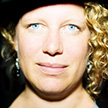Question: How much of the brain would we use to learn each day?
Asked by emeralddragon101 to Emma, Josie, Kristyn, Peter, Sarah on 25 Aug 2013. This question was also asked by cookies, lachlanmac123, eliteronaldo7, cciiaarraa, howl004, adriendubois, vishvish.
Comments
-
commented on 26 Aug 2013:
Yeah I agree Kristyn. But no one can really find out because the brain is really complex isn’t it. I also agree with you Josie because there could be a part of the brain that no one has ever used before. If that was true (because we can’t really prove it,) then if the intelligent people in the world only use ten percent of their brain each day then if they used all their brain, this world would be really awesome!
-
commented on 27 Aug 2013:
Yep, it is really complicated-lucky for us this means we will have a job for awhile 🙂
Sometimes we can learn a lot about how the brain works because of the way injuries and disorders affect the normal working of the brain. The case of HM is a good example of this, he had surgery to correct his epilepsy and ended up with problems forming new memories. Because of the generosity of people like this and their families, we are able to find out a lot about how the brain works.
-








As far as I know nobody agrees on this topic. They used to say we only use 10%, but that’s nonsense.
A part of the brain called the hippocampus (because it looks like a seahorse if you squint, you have to squint really hard though) is mostly associated with learning, and that’s not a very big part of the brain. However, a lot of scientists say that your long term memory is stored in the cortex (a much larger part).
There are roughly two types of brain cells: neurons (10%)and glial cells (90%). It had always been believed that you just use your neurons for the thinking and learning stuff, but some people are saying that maybe we’ve been looking at things all wrong. That 90% may be a ‘sleeping giant’ that we still need to awaken..
1
Even thoguh I am not a neuroscientist nor a neuropsycholgist ( these two sceintits study the brain………..).I do know that the part of the brain that helps us to learn and directs all of our learning, and problem solving acitivites in the day is the pre fromtal cortex. At the front of our heads…..
This part of the brain also needs the most sleep…so if you dont get good sleep your brain will not be able to help you learn and do stuff in the day.
1
As Josie said, we still don’t know for sure.
The hippocampus is basically the first place in the brain where memories are made and what is really fascinating about this process is that the hippocampus receives messages from your nose, eyes, skin, ears-all the senses to bring together as many elements as possible to make a memory.
For example-you may be walking down the street one day and smell someone’s perfume that is similar to your Mother or Grandmother’s and it will suddenly trigger all sorts of (hopefully) pleasant memories!
But once your memories are formed, they are stored in the cortex-or the surface of the brain.
Other parts of the brain, such as the cerebellum which is at the back, are important for learning things like playing the piano or skipping rope, which we call “motor” learning. And yet another part of the brain is important in learning languages, including speaking!
So I would argue that you use ALL of your brain when you are learning each day!! No wonder we need to sleep!!!!
1
Well I think the physiology has been covered by the others, so I’ll talk a bit about the cognitive processes we use for learning.
You have three types of memory:
– Short term memory – people disagree a bit on how much your short term memory can remember, but basically it allows you to store small amounts of information for a brief period (some scientists have suggested around 8-18 seconds). Most of the things in short term memory are discarded, but some of the things get encoded and stored in your long-term memory. Scientists test this by asking people to remember lists of words, and then later recalling them.
– Working memory (this is closely related to short-term memory) – this is what you use when you’re doing things like reading, counting, or trying to solve a maths problem in your head. This doesn’t last very long, and basically helps you when you’re thinking about things, having conversations, and problem solving. Scientists think we can hold around 7 ‘chunks’ of information in our working memory – for example 7 digits, 7 words… this is why it’s easier to remember things like phone numbers if you group the numbers – you have less ‘chunks’ to remember if you think of a phone number as ‘8303’ ’14’ ’25’ than if you remember each digit separately. You can test your working memory with the following activity – https://www.mhhe.com/cls/psy/ch07/digitspan.mhtml
Long term memory – this is what it sounds like really! There have been interesting cases of patients with brain damage which shows how our long term memory might be different from other types of memory, for example people with damage to their hippocampus (the sea-horse shaped memory area of the brain) can remember things from their childhood, and can use their working memory and short term memory to do day-to-day activities, but who are unable to transform any of this short-term memory into new long-term memories – this means they’re basically stuck either in the immediate moment, or in the past, which is pretty sad. So take care of your hippocampus!!! 😛
0
We use vast brain networks to learn each day; certainly the hippocampus and frontal lobe are very important parts of these networks, but there’s different types of learning/memory, and different networks dedicated to each. It’s tough to put a percentage on it, other than to say a large amount of the brain (and various different parts) work together to allow learning.
Some neuroscientists are actually looking at whether we might be able to stimulate parts of the brain to improve learning. For example, electrical stimulation of a part of the frontal lobe (dorsolateral prefrontal cortex) can improve “working memory” (hold information in mind for a short period, and manipulating that information), but there’s probably limits to how far we go with this. I would recommend it for exams, but some clowns are actually trying to market these devices…
0